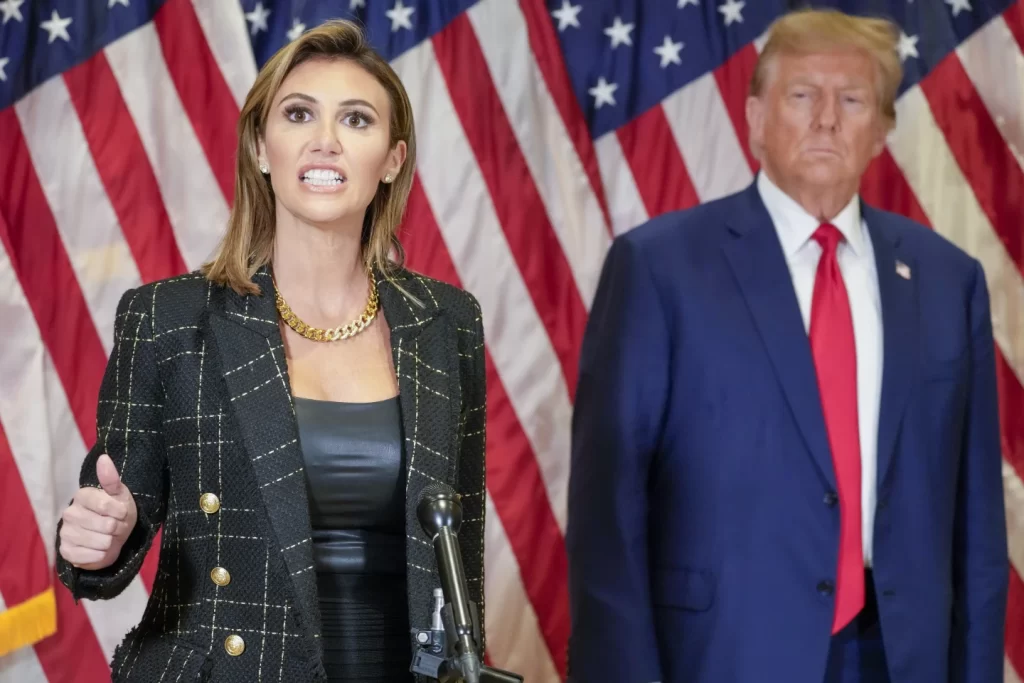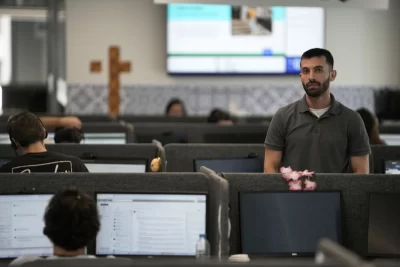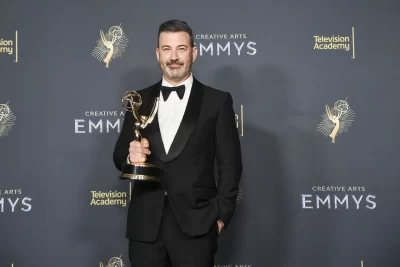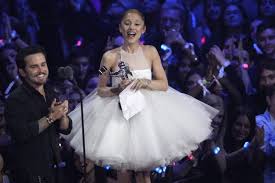
WASHINGTON— Donald Trump was threatened with expulsion from a courtroom last week by a judge angry over the former president’s behavior in a defamation case brought by a writer who accuses him of sexual abuse.
His lawyer didn’t fare much better.
Attorney Alina Habba was ordered to “sit down” after continuing in vain to press a point that the judge had rejected, prompting the lawyer to respond: “I don’t like to be spoken to that way, your Honor.” She was later rebuked for sitting instead of standing while addressing the court and chided the following day over how to properly question a witness. “Evidence 101,” tsk-tsked Judge Lewis A. Kaplan.
The testy clashes have come to be expected as Trump’s lawyers carry into the courtroom the bombastic, and often antagonistic, style that defines his campaign trail demeanor. In arguments that seem to cater more to the client than to the court, Trump’s attorneys have repeatedly invoked his front-runner status in the presidential race despite its questionable relevance, echoed his claims of prosecutorial bias and political persecution and advanced sweeping theories of legal immunity before skeptical judges.
There’s no doubt that the lawyers, with some exceptions, have struggled to score major points with judges and in fact have often provoked their ire. But with Trump a semi-regular courtroom presence, the encounters might also serve a political purpose, with the candidate seeming to invite tongue-lashings from judges to bolster his claims of judicial system bias.
“Trump is really only there as a provocateur,” said Ty Cobb, who led the Trump White House legal response to the Russian election interference investigation. “He wants to be admonished and he wants his lawyers admonished as much as possible to feed the impression that he fraudulently sells to his supporters that the judges are being unfair to him and that he’s a victim.”
Trump faces four criminal cases in different cities and multiple lawsuits. Most of the courtroom action so far has centered in New York, where both sides are awaiting a judge’s ruling in a state attorney general lawsuit accusing him and his company of fraud, and where an ongoing trial centers on defamation claims by writer E. Jean Carroll, who says Trump owes her for remarks he made while president as he vehemently denied ever attacking her or knowing her.
Both cases have been defined by contentious exchanges between judges and Trump and his lawyers.
In November, for instance, they pushed unsuccessfully for a mistrial in the fraud case, accusing Judge Arthur Engoron of “tangible and overwhelming” bias. This month, Engoron rescinded permission for Trump to give his own closing argument at the trial after his lawyers balked at a directive that the statement could not veer into political rhetoric.
When Trump attorney Christophe Kise protested the restrictions, Engoron replied via email: “I won’t debate this yet again. Take it or leave it.”
Trump wound up speaking anyway, calling the case a “fraud on me” while Engoron implored Kise to “control your client.”
The defamation case has featured similarly tense encounters. Among the clashes in the trial’s early days, Kaplan, a veteran judge, scolded Habba, a lawyer with limited federal court trial experience, for speaking over him (“Don’t interrupt me ever again”) and continuing to argue with him after he’d already ruled (“In my courtroom, when the ruling is made, that is the end not the beginning, of argument.”)
The volatility extended to Trump himself, with Kaplan telling him he’d be removed from the courtroom if he remained disruptive during testimony. “I understand,” Kaplan said, “you’re probably very eager for me to do that.” Trump replied: “I would love it.”
In the federal case in Washington charging Trump of conspiring to overturn his 2020 election loss to President Joe Biden, his legal team’s language has often mirrored Trump’s campaign trail comments.
His lawyers have accused prosecutors of using the case as a “platform to advance the Biden Campaign’s dishonest political talking points.” They’ve argued without evidence that Biden pressured the Justice Department to pursue the indictment and pushed unsuccessfully for U.S. District Judge Tanya Chutkan to recuse, claiming the appointee of former President Barack Obama was biased.
Chutkan has repeatedly admonished Trump’s lawyers for political arguments, once telling attorney John Lauro during debate over whether restrictions could be placed on Trump’s speech that though she knew he had a “message” to convey, she didn’t want campaign rhetoric in court.
At another point, Chutkan cut Lauro off when he again called the prosecution politically motivated, telling him: “Obviously you have an audience other than me in mind.”
Trump has cycled through multiple attorneys during the current round of cases, though some lawyers, including Habba, Todd Blanche and Chris Kise, are involved in multiple matters.
A key lawyer during the classified documents investigation, Tim Parlatore, left the team weeks before Trump was indicted, citing conflicts with a close Trump adviser. Two other members of the team announced their resignations the day after the June indictment. Trump lost a high-profile Atlanta lawyer before his August surrender on charges related to subverting the presidential election in Georgia. And one of his New York lawyers, Joe Tacopina, also recently withdrew.
During an interview on MSNBC, Tacopina cited personal reasons for his departure — “I had to follow my compass,” he said — but didn’t elaborate. He hinted, however, at some of the challenges of defending a client like Trump.
“Donald Trump is doing what Donald Trump needs to do to get his message out to his supporters. It’s part of the playbook,” Tacopina said. “As a lawyer, obviously you’d like him to be about the facts and the law, but that’s not always an option.”
One venue where the Trump team has gained more traction is in federal court in Florida, where he’s charged with illegally retaining classified documents at his Mar-a-Lago estate. The judge in that case, Aileen Cannon, a Trump appointee, has appeared receptive to defense lawyers’ contention that the trial might need to be delayed beyond its scheduled May 20 start date.
Even there, though, Trump’s lawyers have countered grave allegations of Espionage Act violations by mimicking Trump’s arguments of Justice Department and intelligence community bias, asserting last week that the case was brought “in pursuit of an objective that President Biden cannot achieve on the campaign trail: slowing down President Trump’s leading campaign in the 2024 presidential election.”




